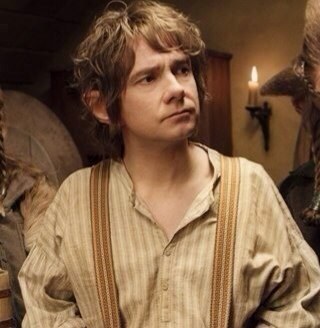Maybe that's why dialogue is one of the hardest things to write. I took a Twitter poll and asked, "What is the hardest part of writing realistic dialogue?" Some of the prompt responses I received were:
"It's finding the balance between being too vague or too much to the point."
"Using current slang."
"That it sounds like the character, not me, and that it fits the logical flow of the manuscript."
"I tend to think literally, and that makes for boring dialogue."
"Accents and continuing personality patterns."
"I can't seem to write the way teens actually speak to each other. What are they saying these days?"
"The grammar. I write like I talk and that means it's choppy and rambling and full of pauses."
"Giving each character their own voice."
"Not knowing when to get them to shut up."
"I don't always pay attention to how people talk, or more vitally, WHY."
Sound familiar?
The conversation rounded out with one writer despairing, "Besides editing, dialogue is the hardest part of writing."
This seems to be a popular opinion. One I happen not to share.
Creating dialogue has always been one of my favorite parts of the writing process. I'm not a published author (yet ;) ), but I have had editors tell me my dialogue was on point. That being the case, I'm starting a series on dialogue. I hope it helps you enjoy the process more, and that it helps your characters sound realistic and lively!
To kick things off, let's talk about what not to do, so that your fictional cast doesn't sound like the notoriously awful script of Star Wars: Episode II.
1. Avoid Captain Obvious
I love the Lord of the Rings films, but Legolas wins the Captain Obvious dialogue award.
"The stars are veiled." "The sky is red." "You look terrible."
Gee thanks.
Conveying information through dialogue is just a cheaper way of telling instead of showing. In fact, using this tactic can result in laughter from your audience. Some MG-age kids I know, who are big fans of How to Train Your Dragon 2, started mocking the Captain Obvious remarks from even their favorite characters.
This method is an unfortunate new trend in animated movies, but is a definite no for novels. What is this? Well, it's when a character starts giving the reader the backstory of their life and situation. Film examples of this? How to Train Your Dragon, again, Brave, Tangled, The Hundred-Foot Journey, to name a few (all films I love, but you do not want any of this sort of thing in your novel.) In fact, I've read from numerous agents that if the first page starts with, "Hello, my name is enter the blank, and let me tell you all the things..." it's an automatic rejection.
3. Catch-up
Your characters are split in an action scene, and we see one character's POV, but instead of showing us the other's, we get a info-dumping catch-up monologue from Character 2. Books guilty of this? Redwall, Eragon, Nancy Drew.
4. Overdose of slang
I love James Dashner's new Mortality Doctrine trilogy opener, Eye of Minds, but his teenage characters use too much colloquialism, banter, and snark for me to handle. Almost every conversation between the three leads involves some form of one or the other, if not all at once. It's like a teenage stereotype overdose. I didn't mind the "slang" as much in Maze Runner, as it was all fictional and new and interesting, and a strong aspect of the limited world building, but I know of fellow readers who disliked it there, too. Unfortunately, it's as if some YA writers only use the colloquialism, banter, and snark as their keys to relate their characters to their teen audience, and end up overdosing their dialogue with it. I'll probably touch more on this in a later post on YA dialogue.
5. High and Mighty
"And unto thee I say forever and aught..."
This plagues fantasy, especially the Tolkien-esque and Arthurian. Just don't do it. Sure, make your characters sound like their era, but don't handle it in a way that your readers won't understand them. And just because other bestsellers do it doesn't mean that you should. Eragon had a bad lopsided case of this, where half the book's dialogue was High and Mighty and the other half more 21st century. Another book in this genre my sister was reading had her rolling her eyes and exclaiming, "Blah, blah, blah, blah, blah!" So scratch the imperial conversation and wordiness and cut down to the necessary. Unless it's meant to be comedic, because it will painfully come across that way regardless.
So there's a good place to start. Like I said, probably the first thing I will touch on in this series is writing dialogue for YA, and later on accents/regionalism, historical, keeping it engaging, etc.
What are some things you try to avoid in your dialogue? What's hard for you when it comes to writing realistic dialogue?






























